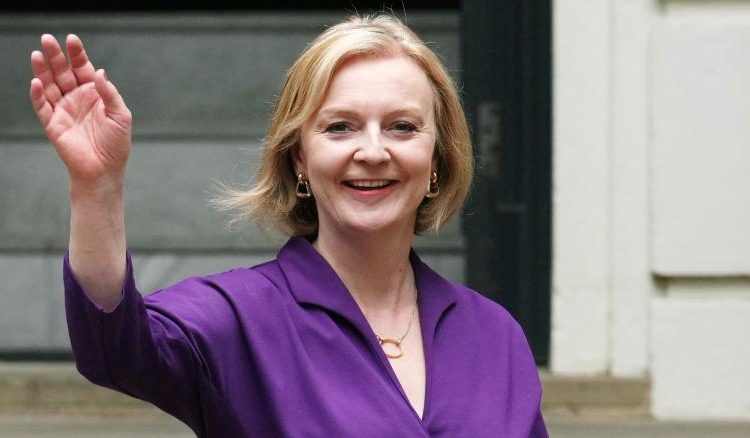After a flurry of political gamesmanship, the Foreign Minister in the Boris Johnson administration, Liz Truss, emerges as the Prime Minister of the United Kingdom. The weeks preceding her victory over her closest rival and erstwhile Finance Minister, Rishi Sunak, witnessed a contest described by political observers as bad-tempered and divisive.
With this victory, Truss becomes the third woman to occupy 10 Downing Street, the official residence of the Prime Minister. Before her were Margaret Thatcher and Theresa May. The office became vacant after Johnson, dogged by a series of scandals and controversies, bowed to public opinion and stepped down to a care-taker position. A couple of days ago, he formally tendered his resignation to The Queen accompanied by the new Prime Minister who was, at the occasion, invited to form a new government.
This change of baton is coming at a time the United Kingdom, like most other countries in Europe and, indeed, the world, was engulfed in issues that are economic as they are political. The challenges of rebuilding the world post-Covid 19, managing the fallouts of the Russia-Ukraine war, a crunch on household finances, industrial unrest and a seeming economic recession.
Her first comments after her victory were a pointer to the policy thrust her Conservative Party hopes to pursue leading to national election, probably, in 2024. She was assertive that her administration will deliver a bold plan to cut taxes and grow the economy. She further pledged to deliver on the energy crisis, dealing with people’s energy bills, and also dealing with the long-term issues on energy supply.
Already, the government of the country has announced a £9.1 billion Energy Bills Rebate to support families with rising global energy prices. The Energy Bills Rebate will provide around 28 million households with an upfront discount on their bills worth £200. Energy suppliers will apply the discount to domestic electricity customers from October, with the government meeting the costs.
Even with this, the United Kingdom is seen as lagging behind other major European countries in supporting its consumers, a situation that was not helped by the protracted Conservatives’ leadership contest.
Truss, 47, has promised to act quickly offering to challenge convention by scrapping tax increases and cutting other levies in a move some economists say would further fuel inflation. Undaunted, she also pledged to review the remit of the Bank of England while protecting its independence. This is seen by experts as part of fiscal loosening which her political associates indicate would be implemented in a responsible way.
Political opinion in the UK claim that Truss will have a weaker starting point than any of her predecessors, because she was not the first choice among her party’s lawmakers. And to win, she played to the Tory’s right-wing base, promising no new taxes and railing against “handouts” even as there is a growing consensus, including among her own Members of Parliament, that the desperate situation is going to require new taxes and handouts.
In analysing the ascendancy of this young female politician, we note some factors that also apply to Nigerian politics and which have continued to, unnecessarily, divert attention from the pressing matters of state. The first should serve as a lesson to female politicians in Nigeria who insist on waiting to have power dropped on their laps. Truss did not wait for concession on the basis of her gender. Actually, that was not even at issue because the contest, while it lasted, was focused on matters that are critical to the welfare of the people as well as the place of the country in world politics. The gender of who was engaging in the debate was inconsequential.
The second is the issue of subsidy, there was a specific amount voted for that purpose as well as how it will benefit each citizen. Compare that with what is going on in Nigeria where, on record, billions of Naira are spent on fuel subsidy every day yet the commodity remains beyond the reach of the average Nigerian who strain and stress to access fuel at a cost that makes the claim of subsidy a lie from the pit of hell.
Similarly, this newspaper observes that matters relating to taxes are not done on the basis of which side a government official woke up from sleep. Tax matters are taken seriously with the overall interest of the nation and her international partners at heart because it could affect investments and the economy as a whole. Of greater importance is that the cultural affinity of the candidates was not on the table. Even a Nigerian dreamt of becoming a Prime Minister. Truss closest rival is of Asian descent.
As Liz Truss steps in, speculations are already rife that some banana peels are already waiting for her on the door steps of No 10. That is to be expected when considered that she won with a very narrow margin. However, as a tested politician, we expect her to maneuver her way deftly and play her role in the country, on the world stage and leave judgment to history and posterity.





